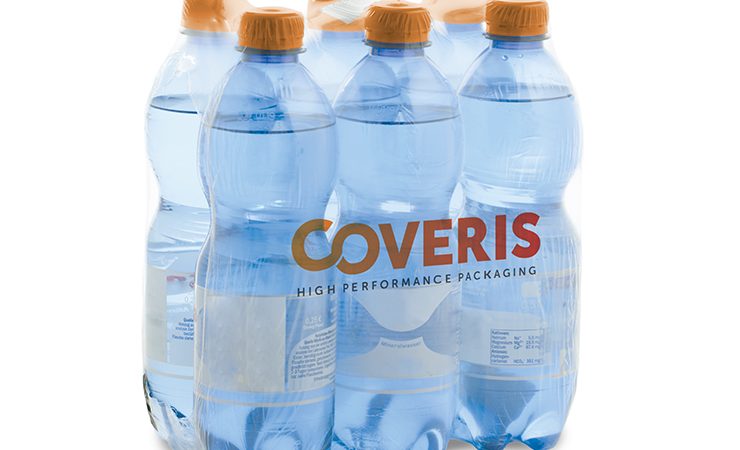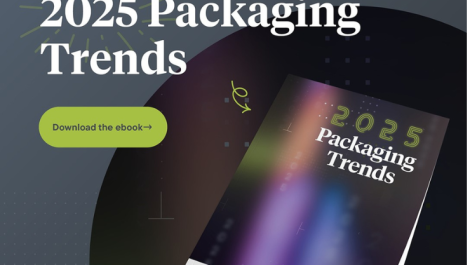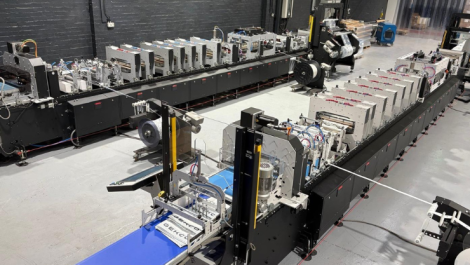Coveris has developed Duralite R, a 100% recycled and recyclable shrink film range.
Duralite R contains up to 50% post-consumer recyclate (PCR), plus pre-consumer top-up materials. These are provided by Coveris’ own zero-waste circular manufacturing process at its extrusion facilities. Such a composition is said to result in the 100% recycled product offsetting the need for virgin materials while maintaining performance, optical clarity and line efficiency.
Suitable for all secondary applications including multi-wrap cans and bottles, the new low-gauge, high-strength, high-clarity film is an extension of the existing Duralite shrink brand that is used by global brands in the beverage and grocery sector.
Available as printed and unprinted versions – currently validated for flexo with future potential for digital printing applications – the lightweight recycled, recyclable polyethylene (PE) packs also offer a significantly reduced carbon footprint compared to cardboard alternatives, as claimed by Coveris.
Currently extruded and printed across Coveris’ European site base, its Kufstein facility is Austria is also adding to the packs sustainable credentials by using 100% renewable and CO2-neutral energy sources to power its manufacturing processes.
As a result Duralite R is said to be part of Coveris’ ongoing sustainable journey to deliver recyclable flexible packaging options, and, ‘provides a fully circular option to meet both the environmental and legislative demands of the future.’
Martin Davis, president of Coveris’ Films business unit said, ‘The development and launch of our new Duralite R film marks a major step forward in the development of sustainable plastics for a circular economy. Complementing our existing range of environmental films such as our recyclable PE for direct contact, the development of a fully recyclable, recycled secondary material that utilises our own waste stream and delivers a reduced carbon footprint supports both our own environmental goals and those of our customers, as well as meeting legislative targets on recycled content.’






